Why are people getting clinically depressed?

"53 year old Sakeena used to be the liveliest person in the neighborhood. She used to enjoy cooking- it was always a feast at Sakneena’s place. Her melodious tunes could effortlessly brighten up anyone’s mood.
Out of the blue, roughly three months ago, a devastating event occurred in her life. Ever since then she started behaving differently. The shine in her eyes disappeared. She no longer laughs wholeheartedly - she barely even smiles.
Her husband Ali notices that Sakeena is always restless, irritated and constantly fatigued throughout the day. He tried several remedies and even tried “ruqya”, but nothing seemed to help her.
After consulting several doctors, she was eventually referred to a psychiatrist. The treatment she received finally provided her with some relief. But the old Sakeena - who was ever so enthusiastic and full of energy - vanished and had not found her way back yet. All her signs and symptoms indicated that she was being consumed by a deep sadness.
Sakeena’s condition can be medically termed as...”
Sadness is an innate emotion in human beings. When faced with negative outcomes or experiences in life, these feelings of sadness or melancholy come naturally. However, some instances lead this prolonging sadness to become unnatural and the sadness turns into a disease. This disease or disorder is clinically termed as depression.
Depression is a mental disease that is characterized by a sadness and grief that is felt and drawn out much more than what is considered normal when faced with negative experiences.
Depression is considered a disease when depressive symptoms last almost all day for at least 2 weeks. The person may also carry the hardships of the disease which may prolong for years without a diminution. One might even have periods of depressive episodes where symptoms come and go.
“How can someone get depressed? Everyone feels sad! Why aren’t everyone depressed?” These are some common questions raised when one talks about depression. In order to understand the truth about depression, it is important to look at the neurological, social and psychological factors of depression. Amounts of these aforementioned factors always jointly contribute to the formation of depression.
Nervous system
The nervous system is the system in our body that helps to sustain the processes of other organs in the body and brings about the different senses. It also coordinates the movements of the muscles in the body.
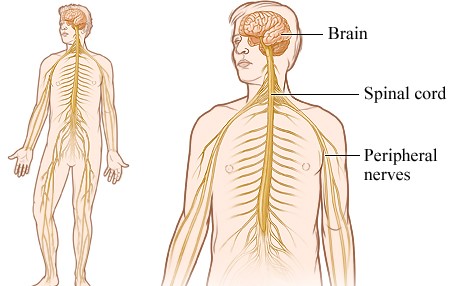
The most important organ in this system is the control system of the body, which is the brain. Tiny neurons help the brain to convey these messages to other organs. There are almost 86 million of these neurons in the brain.
Together they produce a communication system within the body.
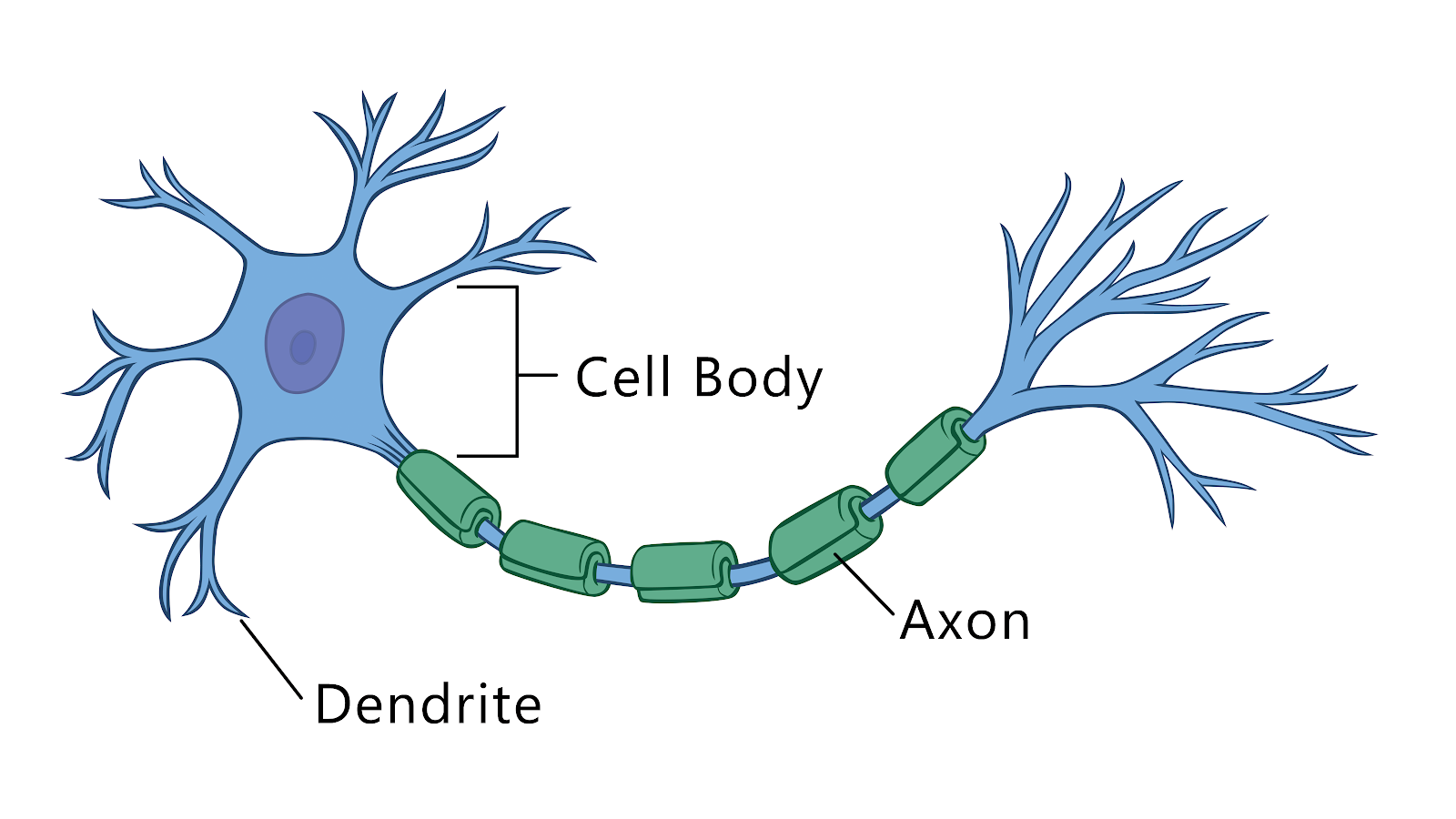
Neurological Factor
There are many different changes that occur in the brain due to depression. Many researchers have found that depression affects the limbic system in the brain.
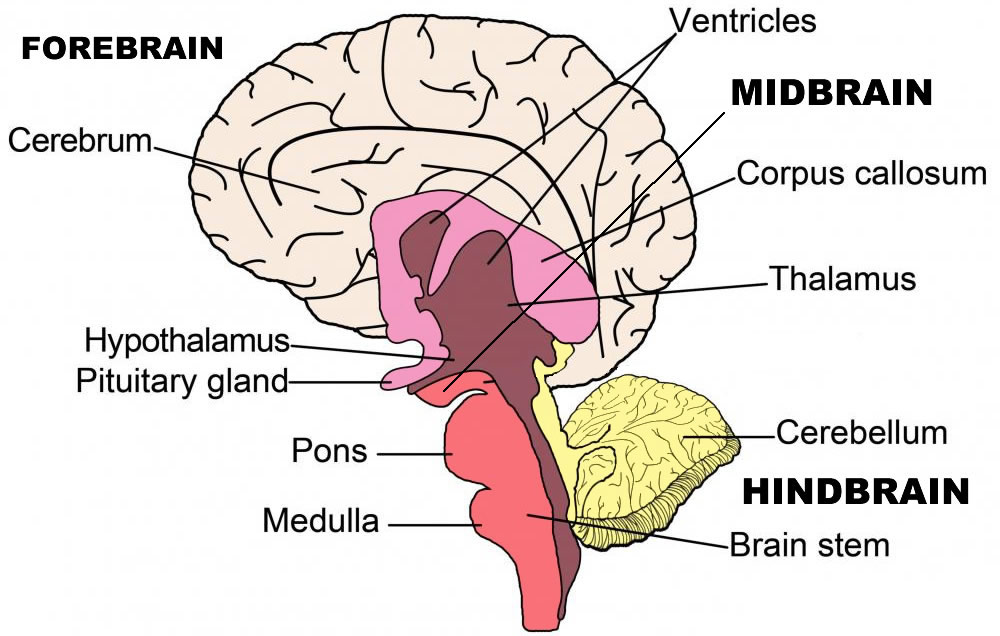
The limbic system is a set of significant structures in the brain. It constitutes parts of the brain that control or affect focus, memory, senses, appetite and sleep.
Thalamus and Amygdala are two important parts of the limbic system. They function to recognize the changes of the environment outside the body and prepare the body for a ‘fight or flight’ response. It is also responsible for protecting and storing important memories.
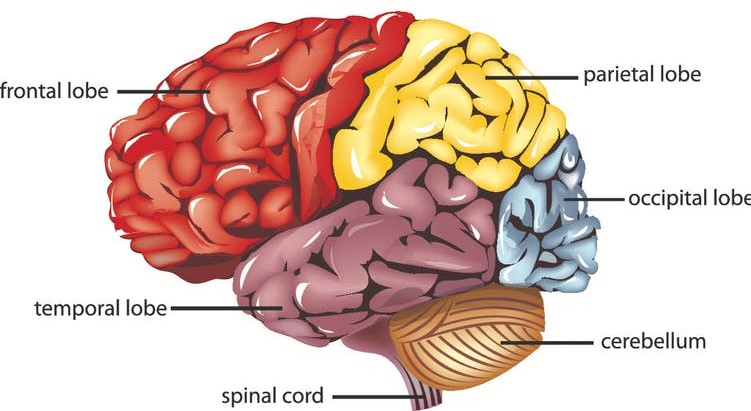
Apart from the limbic system, the frontal lobe of the brain is also negatively affected by the depression.
The frontal lobe is situated near the forehead. It regulates important cognitive skills such as problem solving, judgement and impulse control. It also helps in social and sexual behavior.
Studies show that the frontal lobe and limbic system (especially parts associated with the amygdala) of people who have depression change immensely. Therefore, depression is caused by impaired functioning of the aforementioned parts of the brain and due to negative changes that occur to chemicals associated with these parts of the brain.
- Neurotransmitters
The chemicals that are associated with the above-mentioned parts of the brain are known as neurotransmitters. They are chemicals that convey the communicative messages between neurons.
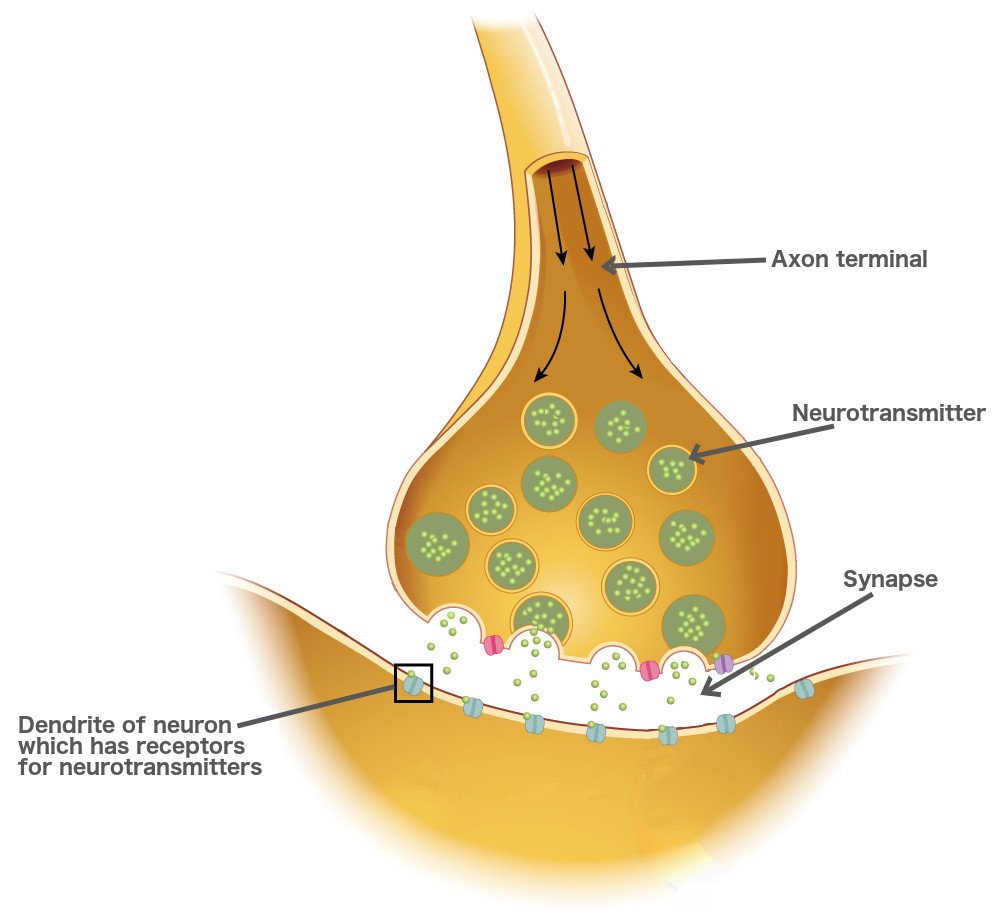
Because two neurons are not connected together physically, there is a gap between the end terminal of the first neuron and the receiving end of the second neuron. This space is called a synaptic cleft.
The messages or signals sent by the brain are carried from one neuron to the other by the neurotransmitters released at the axon terminal of the first neuron. These neurotransmitters travel through the synaptic cleft and is taken up by the second neuron. The junction where the message is transmitted by these chemicals is called a synapse.
Normal transmission of the message or signal is maintained when adequate number of neurotransmitters are released and held at the synapse for adequate time. Furthermore, the receptors on the second neuron should be compatible to accept the incoming neurotransmitters. Only then, the neurons would be active in transmitting the signals to other organs of the body.
“Monoamines” is a group of neurotransmitters that was found to be associated with depression. Examples of monoamine neurotransmitters include Norepinephrine, Serotonin and Dopamine.
They are involved in conducting feelings of happiness, content and joy. There is a significant link between the areas where these neurotransmitters are produced and the frontal lobe of the brain.
Many monoamines are found in the limbic system as well. Therefore, scientific studies propose that negative effects on the monoamines lead to symptoms of fatigue, sadness and anti-social behavior. This is the second neurological factor that can cause depression.
- Stress hormones
Another chemical that is associated with depression is a stress hormone called Cortisol, which is a hormone released when the body is under stress. Cortisol is released by the adrenal glands placed above the kidneys.
Studies found that people with depression have an unusually high level of cortisol in their blood. Elevated cortisol levels cause increased distress in stressful situations. Consequently, it also disrupts the work of Serotonin and Norepinephrine. Hence, it results with a chemical imbalance in the brain.
A “chemical imbalance” in the brain can be defined as the presence of incorrect amounts of certain chemicals in the brain; more precisely, either too much or too little amounts of neurotransmitters. This in turn is believed to be a cause of depression.
- Genetics of Depression
Genetics is the answer to why some people are more prone to getting depressed than others. The genes which are passed down from parents can make the child more vulnerable to depression. There is a greater chance of a person going into depression if their mother or father also had depression.
The inherited genes may affect the ability of the person to effectively and positively address periods of sadness or stressful situations in their lives. Although genes and genetic factors predetermine the risk of one being affected by depression, the environment where one grows up and their experiences alter the possibilities as well.
Social factor
Usually, symptoms of depression are seen after a person encounters a sad experience in life. For instance, getting fired from a job, going through a divorce or the grief that comes with going through the death of a loved one can change into depression.
Having to face negative situations for many days without cessation can also lead to the person getting clinically depressed. These may include continuous abuse, domestic violence, sexual abuse and continuously facing discrimination.
Anti-social or lonely people have a much higher chance of getting depressed. People who are ostracized and isolated by others due to various reasons are also vulnerable to depression. That is as, if one does not have a companion who would provide love and support throughout the different phases of life, it would undoubtedly cause them to grieve more than one with a stable support system.
Sometimes, depression can also be contagious. If a person spends a lot of time with another person who has a mental disorder such as depression, their perspective towards life may change, and they might start thinking more negatively. Therefore they become more vulnerable to depression. For instance, a person’s life partner having depression might also lead to the person getting depressed as well.
Moreover, some studies show that women are more prone to getting depressed. This is due to the life experiences of women and the changes associated with these experiences. Women who go through pregnancy have to deal with many different changes that occur to their bodies and hormone levels, as well as changes that occur to their social life, which may cause depression.
Psychological Factors
Some people have different coping mechanisms and this can also make them more vulnerable to depression. People who have a more positive attitude and confidence in themselves are less prone to being depressed.
Those who tend to focus on the negative more also tend to find more negative aspects in any and every thing. They also tend to use more melancholic words and are more inclined to remember only the undesirable or sad experiences in life. Their approach to dealing with stress is unhelpful and destructive.
In addition, this cognitive distortion or negative thinking when faced with challenges becomes a habit and these people tend to keep an illogical or misleading mindset towards themselves and those surrounding them. This leads to the belief of low self-worth and self-esteem.
Some people also believe that bad things only happen to them. And they tend to blame themselves for the negative experiences they face. They find it especially hard to forgive themselves on such occasions. If one possesses such beliefs and attitudes, they have a much higher chance of going into depression.
Note
More research is still ongoing about the causes of depression. The numbers of people who are going into depression are increasing day by day due to a combination of neurological, social and psychological factors.
According to the World Health Organization (WHO), 332 million people have been recorded to have depression all around the world. Even in the Maldives, the number of people with depression is high and continues to grow higher.
Therefore, understanding the basis of depression is very essential. More importantly, when one succumbs to such a disease, it is vital to get the required medical help – such as counseling, psychotherapy or psychiatric help – as soon as possible.
This article is in association with the Maldives National University Students Union (MNUSU) and the Medicos Wing.
Reviewed by:
Dr. Zeba Un Naher
Assistant Professor
School of medicine
Maldives National University



Leave a comment
0 Comments